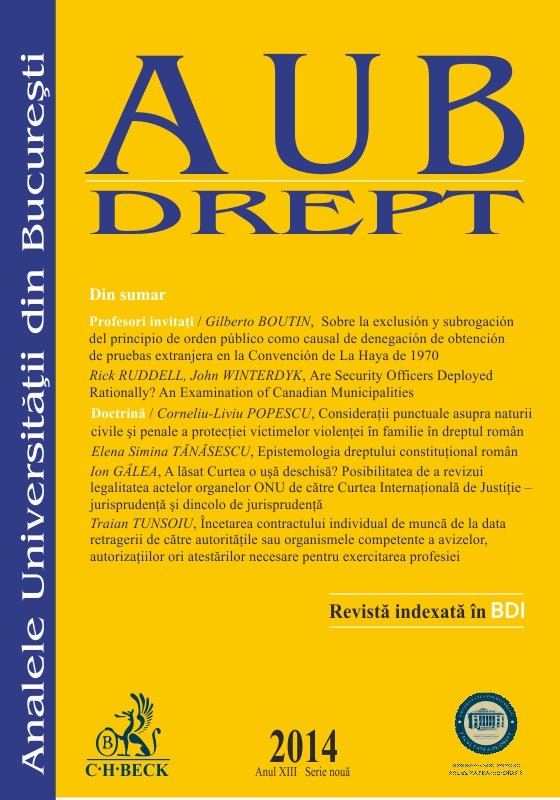Epistemology of Romanian Constitutional Law
Epistemology of Romanian Constitutional Law
Author(s): Simina TănăsescuSubject(s): Law, Constitution, Jurisprudence, Constitutional Law
Published by: C.H. Beck Publishing House - Romania
Keywords: epistemology; legal exegesis; legal positivism; legal interpretation; constitutional law; comparative law;
Summary/Abstract: This paper provides an overview of methodologies used for teaching constitutional law in Romania since communist times up until today. Rhetorically, the epistemology of socialist constitutional law was committed to legal positivism. However, as a matter of fact, the method used was a mere caricature of this respectable form of formalism, nothing more than a deplorable glorification of ‘analysis’ of words in which legal rules were formulated, without any interest towards ‘contents’, i.e. social realities for which they stand. After the fall of the communist regime Romanian legal scholarship displayed a sort of reluctance or even rejection of positivism altogether. However, liberated from what could be labelled as scarcity of intellectual resources of communist constitutional law’s epistemology, Romanian legal scholarship afforded to approach a variety of methods, ranging from axiomatic and formal (Bucharest) to empirical ones (Iasi), while the relational and structural perspective (Cluj, Craiova, Timisoara) replaced to a large extent the mechanical ontology of the past and made possible the survival of contemporary neo-positivism at the same time as the affirmation of contextual relativism (Sibiu). The last part of this contribution emphasises the main tenets of contemporary constitutional epistemologies, i.e. the comparative method and the exegesis of case-law, and draws attention towards their potential pitfalls which have to be avoided.
Journal: Analele Universității București – Seria Drept (AUB)
- Issue Year: 2014
- Issue No: 1
- Page Range: 41-46
- Page Count: 6
- Language: English
- Content File-PDF

